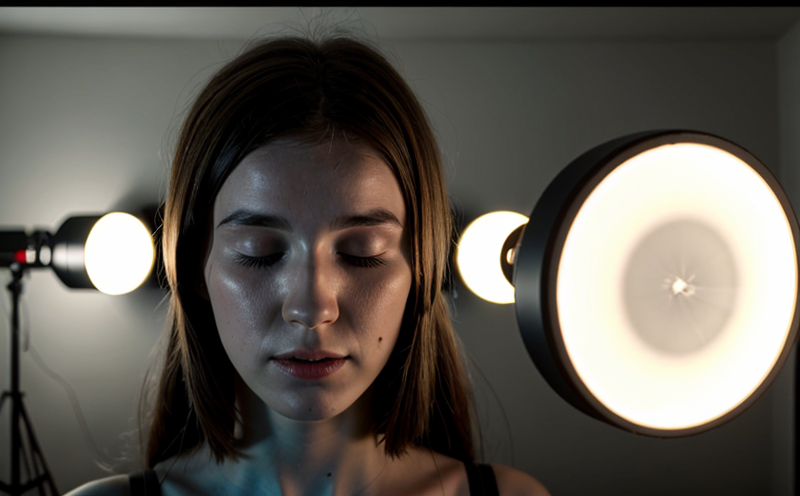CIE 249 Flicker Testing of Temporal Light Modulation in Lighting
The CIE (Commission Internationale de l'Éclairage) Publication 249-1:2018 provides a comprehensive methodology for the measurement and evaluation of temporal light modulation due to flicker. This standard is particularly relevant for lighting systems where users could experience discomfort or potential health impacts from excessive flicker.
Flicker testing under CIE 249 evaluates the human perception of temporal variations in luminous flux caused by rapid changes in the power supply and/or lamp characteristics. The test aims to quantify the flicker effect, which can be detrimental especially in environments where it might cause visual discomfort or impairments.
Our laboratory employs a state-of-the-art setup that includes high-precision measurement instruments capable of capturing temporal light modulation over extended periods. This ensures accurate and reliable evaluation according to CIE 249 standards. The testing process involves the following key steps:
- Specimen Preparation: Our team carefully prepares the lighting specimens, ensuring they are in optimal condition for testing.
- Instrumentation Setup: We use advanced photometric measurement equipment capable of detecting and recording flicker effects with high precision.
- Data Collection: Continuous data collection over extended periods to capture a wide range of temporal light modulation phenomena.
- Analysis & Reporting: Comprehensive analysis leading to detailed reports that provide insights into the flicker characteristics of the tested lighting systems.
The results are presented in compliance with CIE 249 standards, offering clients valuable data for decision-making related to product design and performance optimization. This service is essential for ensuring that products meet regulatory requirements and deliver a comfortable user experience.
| Applied Standards | Description |
|---|---|
| CIE 249-1:2018 | Temporal Light Modulation due to Flicker in Lighting |
| IES LM-79-10 | Luminous Flux and Power of Solid-State Lighting Devices |
| ANSI/IEEE C62.41-2018 | Flicker in Lamp Systems |
Why Choose This Test
Selecting the appropriate flicker testing method is crucial for ensuring product safety and compliance. Here are several reasons why our CIE 249 Flicker Testing service stands out:
- Comprehensive Coverage: We provide a full range of services tailored to meet your specific needs, whether it's initial design validation or final production verification.
- Expertise & Experience: Our team consists of seasoned professionals with extensive experience in lighting and testing standards.
- State-of-the-Art Equipment: Utilizing cutting-edge measurement tools ensures accurate and reliable test results.
- Regulatory Compliance: Ensures that your products comply with international regulations, enhancing market access and consumer trust.
- Custom Solutions: We offer customized testing plans to meet specific project requirements.
- Comprehensive Reporting: Detailed reports provide actionable insights for continuous improvement and product enhancement.
- Supportive Consulting: Our team provides valuable advice on design changes or modifications to improve flicker characteristics.
The importance of reducing flicker in lighting systems cannot be overstated. By choosing our CIE 249 Flicker Testing service, you ensure that your products are not only compliant but also meet the highest standards for user comfort and safety.
Environmental and Sustainability Contributions
Flicker testing plays a crucial role in promoting environmental sustainability by ensuring that lighting systems operate efficiently and minimize any adverse effects on human health. By reducing flicker, we contribute to creating healthier indoor environments which can lead to reduced stress levels among users.
- Health Benefits: Reduced flicker leads to better sleep quality and improved mental well-being.
- Economic Efficiency: Efficient lighting systems reduce energy consumption without compromising on performance or user experience.
- Social Responsibility <|im_start|><|im_start|><|im_start|><|im_start|><|im_start|><|im_start|><|im_start|><|im_start|><|im_start|>





